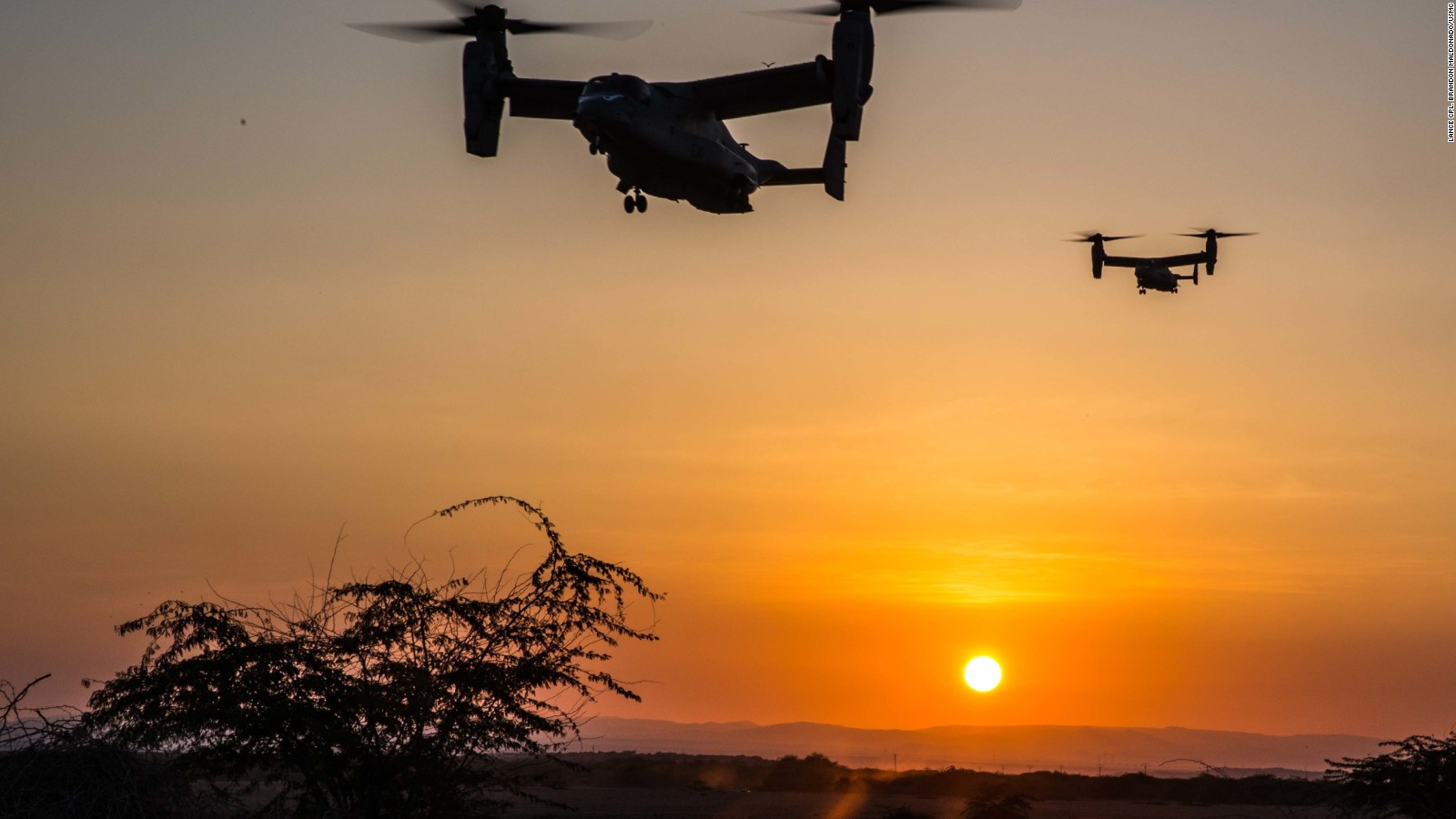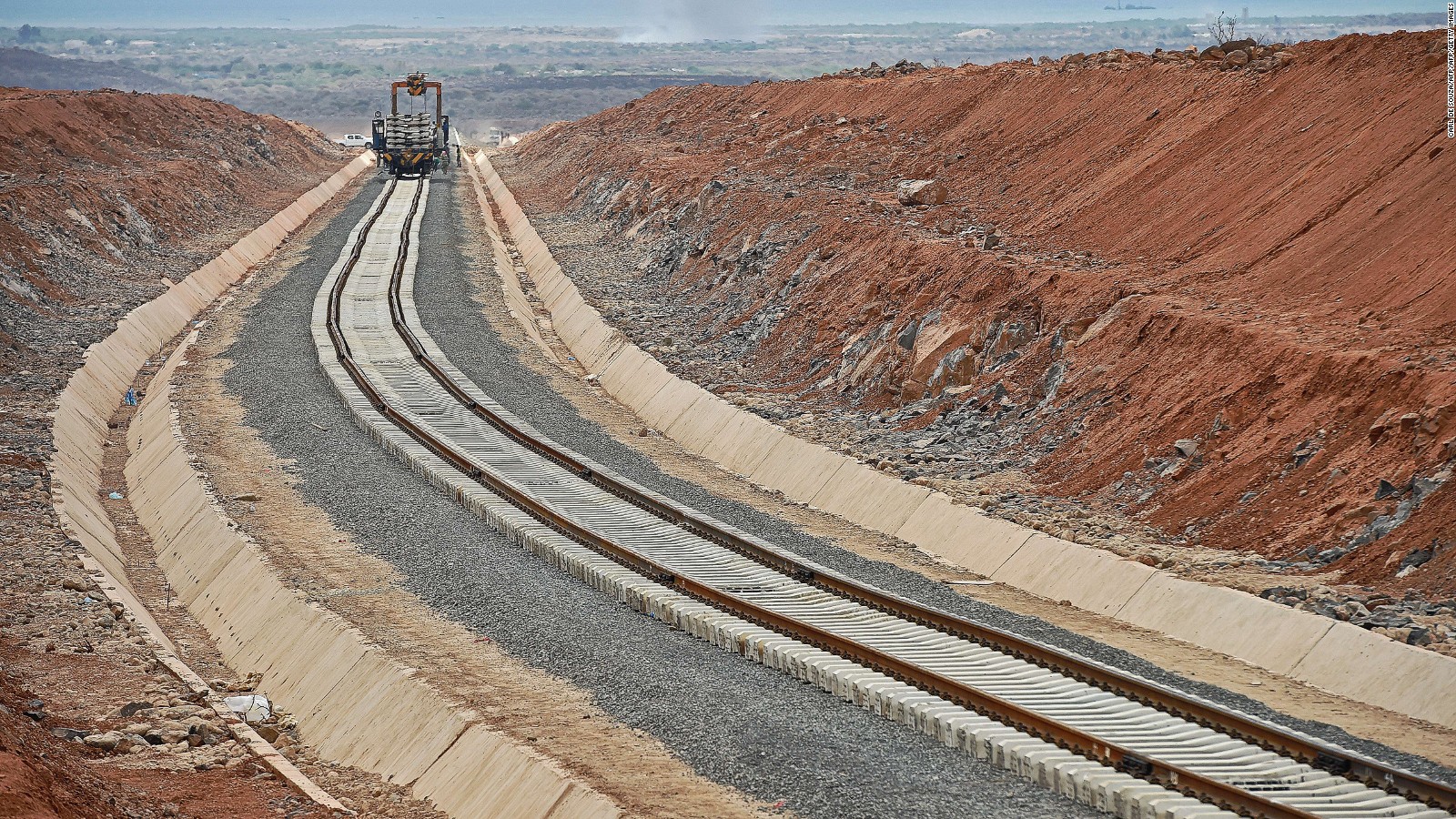(CNN)China has dispatched troops to Djibouti in advance of formally establishing the country's first overseas military base.
Two Chinese Navy warships left the port of Zhanjiang on Tuesday, taking an undisclosed number of military personnel on the journey across the Indian Ocean. An editorial Wednesday in the state-run Global Times stressed the importance of the new Djibouti facility -- in the strategically located Horn of Africa -- to the Chinese military."Certainly this is the People's Liberation Army's first overseas base and we will base troops there. It's not a commercial resupply point... This base can support Chinese Navy to go farther, so it means a lot," said the paper.The Global Times said the main role of the base would be to support Chinese warships operating in the region in anti-piracy and humanitarian operations."It's not about seeking to control the world," said the editorial.

Two Chinese Navy warships left the port of Zhanjiang on Tuesday, taking an undisclosed number of military personnel on the journey across the Indian Ocean. An editorial Wednesday in the state-run Global Times stressed the importance of the new Djibouti facility -- in the strategically located Horn of Africa -- to the Chinese military."Certainly this is the People's Liberation Army's first overseas base and we will base troops there. It's not a commercial resupply point... This base can support Chinese Navy to go farther, so it means a lot," said the paper.The Global Times said the main role of the base would be to support Chinese warships operating in the region in anti-piracy and humanitarian operations."It's not about seeking to control the world," said the editorial.
Chinese People's Liberation Army-Navy troops march in Djibouti's independence day parade on June 27, marking 40 years since the end of French rule in the Horn of Africa country.
China sends troops to Djibouti, establishes first overseas military base
Chinese military presence
At a regular press briefing Wednesday, Chinese Foreign Ministry spokesman Geng Shuang described the base as part of ongoing efforts to help bring peace and security to the region.
"China has been deploying naval ships to waters off Somalia in the Gulf of Aden to conduct escorting missions since 2008," said Geng. "The completion and operation of the base will help China better fulfill its international obligations in conducting escorting missions and humanitarian assistance ... It will also help promote economic and social development in Djibouti."
China has expanded its military ties across Africa in recent years. According to a report by the European Council on Foreign Relations (ECFR), cooperation with Africa on peace and security is now an "explicit part of Beijing's foreign policy."
In 2015 Chinese President Xi Jinping committed 8,000 troops to the UN peacekeeping standby force — one fifth of the 40,000 total troops committed by 50 nations — China also pledged $100 million to the African Union standby force and $1 billion to establish the UN Peace and Development Trust Fund.
More than 2,500 Chinese combat-ready soldiers and police officers are now deployed in blue-helmet missions across the African continent, with the largest deployments in South Sudan (1,051), Liberia (666), and Mali (402), according to the ECFR.
"Blue-helmet deployments give the PLA a chance to build up field experience abroad -- and to help secure Chinese economic interests in places such as South Sudan," said the ECFR report.
Africa is home to an estimated one million Chinese nationals, with many employed in infrastructure projects backed by the Chinese government.
"China's involvement in African security is a product of a wider transformation of China's national defense policy. It is taking on a global outlook ... and incorporating new concepts such as the protection of overseas interests and open seas protection," said the report.
US 'strategic interests'
China joins the US, France and Japan, among others, with permanent bases in Djibouti, a former French colony with a population of less than one million residents.
Though small in both population and size, Djibouti's position on the tip of the Horn of Africa offers strategic access to the Bab el-Mandeb Strait.
The strait, which is only 18 miles wide at its narrowest point, connects the Mediterranean Sea via the Suez Canal and the Red Sea to the Gulf of Aden and the Indian Ocean beyond.
One of the world's most important sea lanes, millions of barrels of oil and petroleum products pass through the strait daily, according to GlobalSecurity.org.
US Marine Corps Gen. Thomas Waldhauser, the head of the Pentagon's Africa Command, stressed Djibouti's location during a visit to the US Camp Lemonnier garrison there earlier this year.
"This particular piece of geography is very, very important to our strategic interests," Waldhauser said in joint appearance with US Defense Secretary James Mattis.
The US military has some 4,000 troops at Camp Lemonnier, a 100-acre base for which it signed a 10-year, $630 million lease in 2014, according to media reports.
Elsewhere in Djibouti, the US military operates the Chabelley Airfield, from which the Pentagon stages drone airstrikes, likely into Somalia and across the Bab el-Mandeb Strait into Yemen, according to the Center for the Study of the Drone at Bard College in New York. The Pentagon is investing millions in the base, and satellite photos show several construction projects, the center reported last year.

US Marine Corps MV-22 Ospreys prepare to land at a landing zone during training conducted in Djibouti on January 10.
'Get-rich-quick scheme'
Japan, which has seen tense relations with China over disputed islands in the East China Sea, has established what it calls an "activity facility" to support its anti-piracy efforts there.
A spokesperson for the Japan Self Defense Forces said 170 troops are at its 30-acre facility in Djibouti.
Lease terms would not be released, but Japan will spend about $9 million to operate the facility this fiscal year, the spokesperson said.
Edward Paice, director of the London-based Africa Research Institute, said a base in Djibouti makes a lot of sense for China, just as it does for Japan or the US.
"It (China) has cited its desire to play a greater role in peacekeeping, and it has combat troops in both South Sudan and Mali. It's logical that it needs an actual base somewhere in Africa, which is really no different from the Americans saying that they need Camp Lemonnier as a headquarters for operations in Africa, whether in peacekeeping or counterterror or whatever," Paice said on The Cipher Brief website.

Picture taken on May 5, 2015, shows work in progress on the new railway tracks linking Djibouti with Addis Ababa.
Paice points out that China made a substantial investment in Djibouti -- about $500 million, according to reports -- to build the Djibouti portion of a rail line to the capital of neighboring Ethiopia.
"It's a confluence of these factors -- trade, military, and stability in the host country's government" that brought China to Djibouti, Paice said.
Meanwhile, for Djibouti, it's all about money, Paice said. "This is a fantastic get-rich-quick scheme -- to rent bits of desert to foreign powers. It's as simple as that."
CNN's Serenitie Wang, Daisy Lee and Junko Ogura contributed to this report.
No comments:
Post a Comment
Comments always welcome!